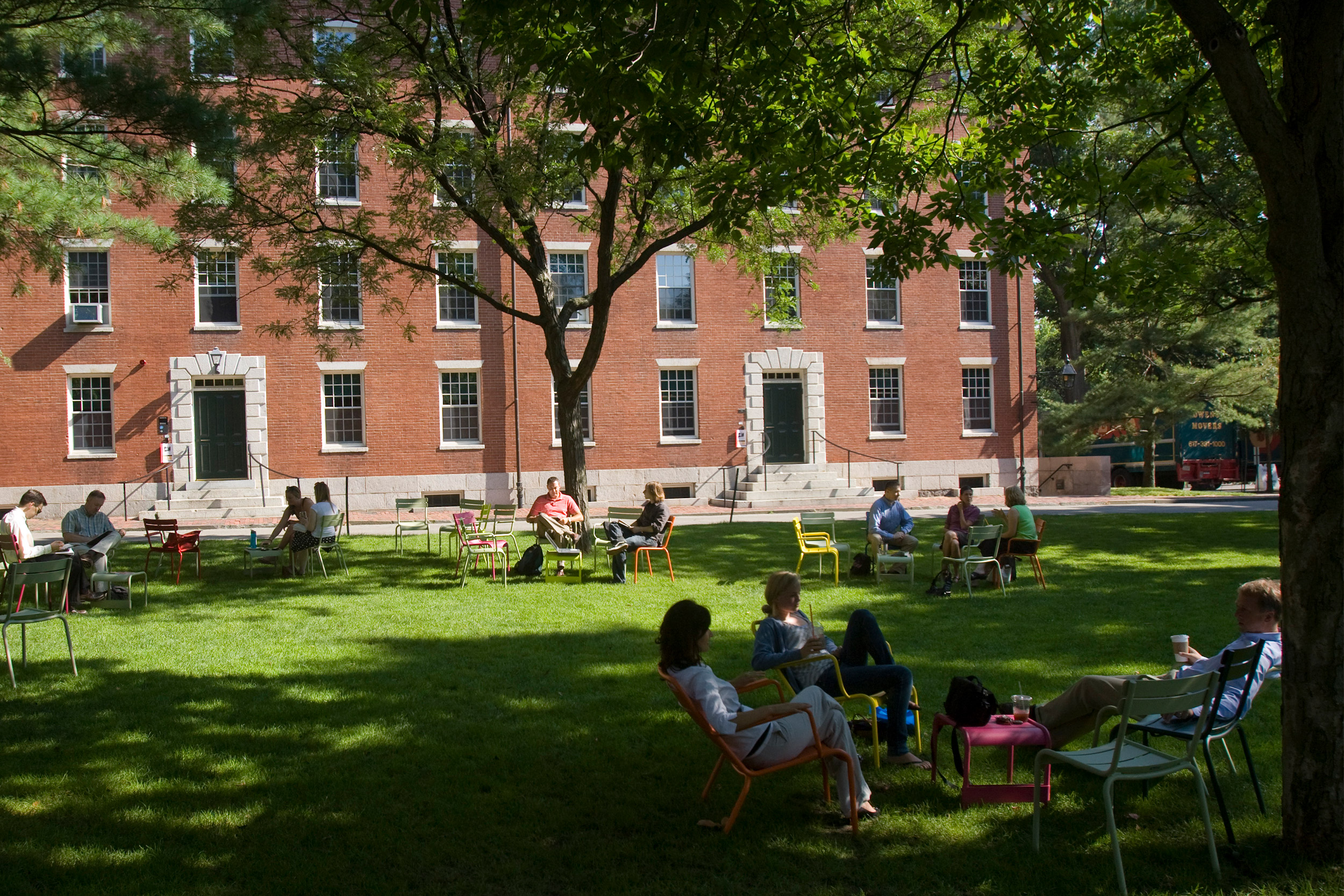
Plans are being made by the University to ensure safety, health, and productivity of community amid coronavirus outbreak.
Kris Snibbe/Harvard file photo
Harvard details coronavirus outbreak plans
Executive Vice President Katie Lapp discusses preparations to ensure safety, health, and productivity of community
Since the initial outbreak of the coronavirus in Wuhan, China, the Gazette has been providing regular updates from Harvard specialists in epidemiology, infectious disease, economics, politics, and other disciplines. Here, the Gazette speaks with Executive Vice President Katie Lapp to learn about the extensive preparations and contingency planning that the University is undertaking to ensure the safety, health, and productivity of the Harvard community.
Q&A
Katie Lapp
GAZETTE: What has the University been doing to prepare the community should coronavirus arrive on campus?
LAPP: Since the initial reports of cases of coronavirus arising in Wuhan, we’ve been engaged in University-wide contingency planning for a range of possible scenarios. Groups across campus have been meeting several times per day to discuss everything from the global impacts of the virus — from health to travel and logistical standpoints to the steps we’re taking to ready ourselves should cases of the virus arise here at Harvard. The University has an extensive, coordinated, and well-practiced planning infrastructure in place that focuses on the health, safety, and well-being of students, faculty, staff, and visitors alike.
GAZETTE: Can you give us a broad sense of what that looks like?
LAPP: Every morning, health experts, leaders, and staff from Harvard University Health Services (HUHS), the Office of the Vice Provost for International Affairs, Harvard International Office, Environmental Health and Safety, Human Resources, the Office of the General Counsel, Global Support Services, and Harvard Public Affairs and Communications connect for a daily huddle. This group is discussing topics such as the latest medical updates, contingency planning for upcoming campus events, inbound and outbound travel, and providing the most relevant and up-to-date information to the campus community. In addition, a medical advisory group of experts from HUHS, T.H. Chan School of Public Health, and Harvard Medical School are meeting regularly to leverage the extensive breadth and depth of knowledge of infectious disease experts found across Harvard. There are also regular convenings and conference calls that bring together administrative deans and other leaders from across each of the Schools, as well as within the Schools and units, regarding the sharing of guidance and contingency planning.
Many of you have likely already received messages from Provost Alan Garber and HUHS Director Giang Nguyen on changes in international programming due to coronavirus, as well as travel advisories to those regions that have been affected. The University will continue to send regular communications and update a new website devoted to coronavirus information and resources as the situation evolves.
GAZETTE: Can you talk about some of the contingency planning that is in place should coronavirus come to Harvard?
“While this work has been informed by previous University planning for outbreaks such as mumps, H1N1, and Ebola, this novel coronavirus is a very different disease and presents its own unique challenges.”
LAPP: All of the administrative deans across campus have been meeting regularly to ensure that the individual Schools are as well prepared and coordinated as possible. We have various work streams set up across our Schools and units focusing on student support, faculty support, and staff guidance to keep the campus running and safe if an outbreak should occur. This group is discussing everything from potential suggested social distancing, to how to support research labs if technicians can’t come to work, to how we’ll continue to keep the power on and our students fed if on-campus staffing becomes an issue.
In addition, Harvard’s Crisis Management Team, emergency support functions, and local emergency management teams have formed coronavirus task forces regarding campus services, logistics, events, human resources, information technology, finance, student services, and laboratories.
A lot of this work is devoted to ensuring that people are aware of existing policies and procedures on campus that can and should be adopted if cases of coronavirus arise at Harvard, such as remote work policies and the use of platforms like Zoom video conferencing that allow for remote engagement across our community.
While this work has been informed by previous University planning for outbreaks such as mumps, H1N1, and Ebola, this novel coronavirus is a very different disease and presents its own unique challenges. We’re hard at work assessing our policies and procedures, drawing on the advice of international, federal, state, and local authorities such as the World Health Organization, the Centers for Disease Control [and Prevention], and the Massachusetts Department of Health, and we’re making updates in real time that best reflect the most effective responses to coronavirus.
GAZETTE: Apart from University-wide communications, where can community members find the most up-to-date information?
LAPP: We’ve created a website with the most current information on coronavirus, which I encourage community members to visit: www.harvard.edu/coronavirus.







